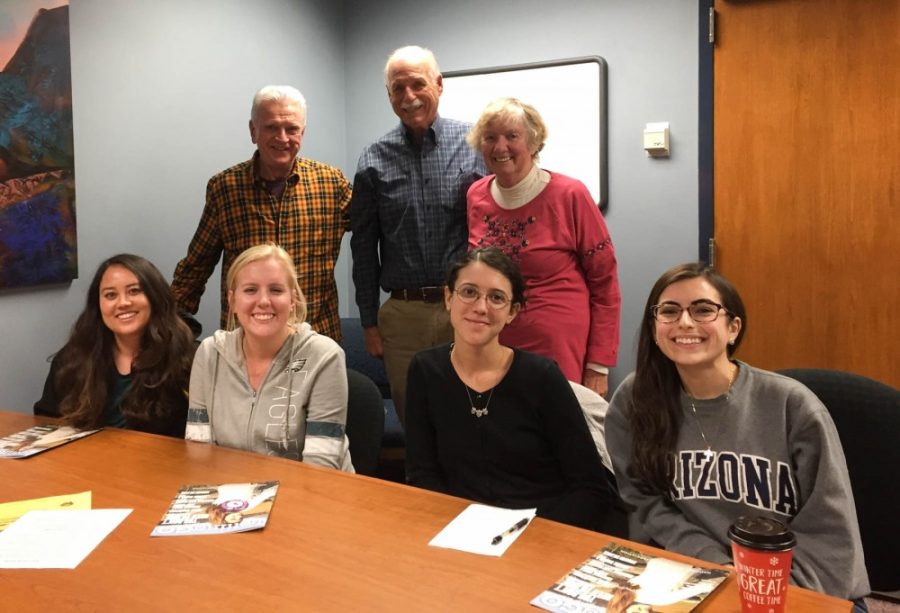The Tucson Chapter of the National Stuttering Association meets on the first Tuesday of the month at the University of Arizona Speech Clinic to provide support and camaraderie to people who stutter.
The group is comprised of people who stutter, friends of people who stutter and speech language pathology students who unite not to eradicate stuttering, but to accept it.
“Sometimes people are coming into it pretty scared and they see all these people having fun and they go ‘Oh man, I don’t have to be so scared …’” said Janet Hawley, a chapter leader and speech language pathologist at the UA. “We’re all about not hiding it.”
Stuttering has no known cause, though scientists have identified genetic and subtle neurological factors. Traditional therapies meant to reduce frequency and severity of stuttering are only temporarily effective for some people.
The NSA was established in 1977 and is currently the largest self-help organization for people who stutter. The Tucson chapter was one of the first five chapters.
“The NSA Tucson has held consistent to its goals of providing support and education to those who stutter and those who love them,” said John O’Hare, a member of the NSA for 40 years and a current chapter leader. “The Tucson chapter has had its ups and downs in activity over the years. Currently with the support from the UofA, we are in an uptrend.”
This was not always the case. The UA, like many other institutions, once embraced the philosophy of trying to reduce stuttering.
“When I first came to Arizona in 2002 … I didn’t feel much acceptance from the university,” said Judith Eckhardt, a person who stutters and a renowned speech language pathologist. “Because there were people in charge … that just were much more in the camp of ‘Let’s get rid of stuttering because we’re not interested in accepting it.’”
Eckhardt, now retired, spent her career specializing in stuttering and advocating for people who stutter. She recommends that people who stutter advertise their stuttering, as it can help reduce tension in social situations. In her own speech, Eckhardt practices voluntary stuttering and stuttering intentionally to let people know that she stutters.
She advocated for stuttering at conferences around the world, including a particularly memorable one in Australia, a country that strongly embraced the idea that stuttering should be reduced via therapy.
“I did one of their keynote addresses and let a lot of st-st-st-stuttering hang out,” Eckhardt said. “I didn’t eradicate it at all. One guy said to me later, ‘I don’t know how you got so much nerve to do that over here’ … I don’t think they were too pleased with me.”
Eckhardt and O’Hare have noticed a positive change in societal attitudes toward people who stutter, possibly due to the increased availability of information on stuttering brought on by the internet. Eckhardt also cited friendly rivalry as a possible reason for the recent improvement on the UA campus.
“I think what’s helping a whole lot is the University of Arizona didn’t realize how far behind ASU they are,” Eckhardt said. “Think about the competition!”
Whatever the exact reason, the NSA Tucson chapter has continued seeing positive results since moving their meetings onto campus. Two recent graduates secured high-level jobs within Exxonmobil and Macy’s.
The value of groups like this reveals itself in both grand success stories and smaller daily victories, including a young man who reached a conclusion after years of trying to hide and reduce his stuttering.
“He said something in a meeting one day: ‘I actually feel worse about myself when I try to hide my stuttering than when I stutter,’” Hawley said. “[He said] ‘I feel like I’m not being true to myself … I want to be who I am.’”
The Tucson Chapter of the National Stuttering Association meets on the first Tuesday of every month at 6 p.m. in the UA Speech Clinic in Room 229.









